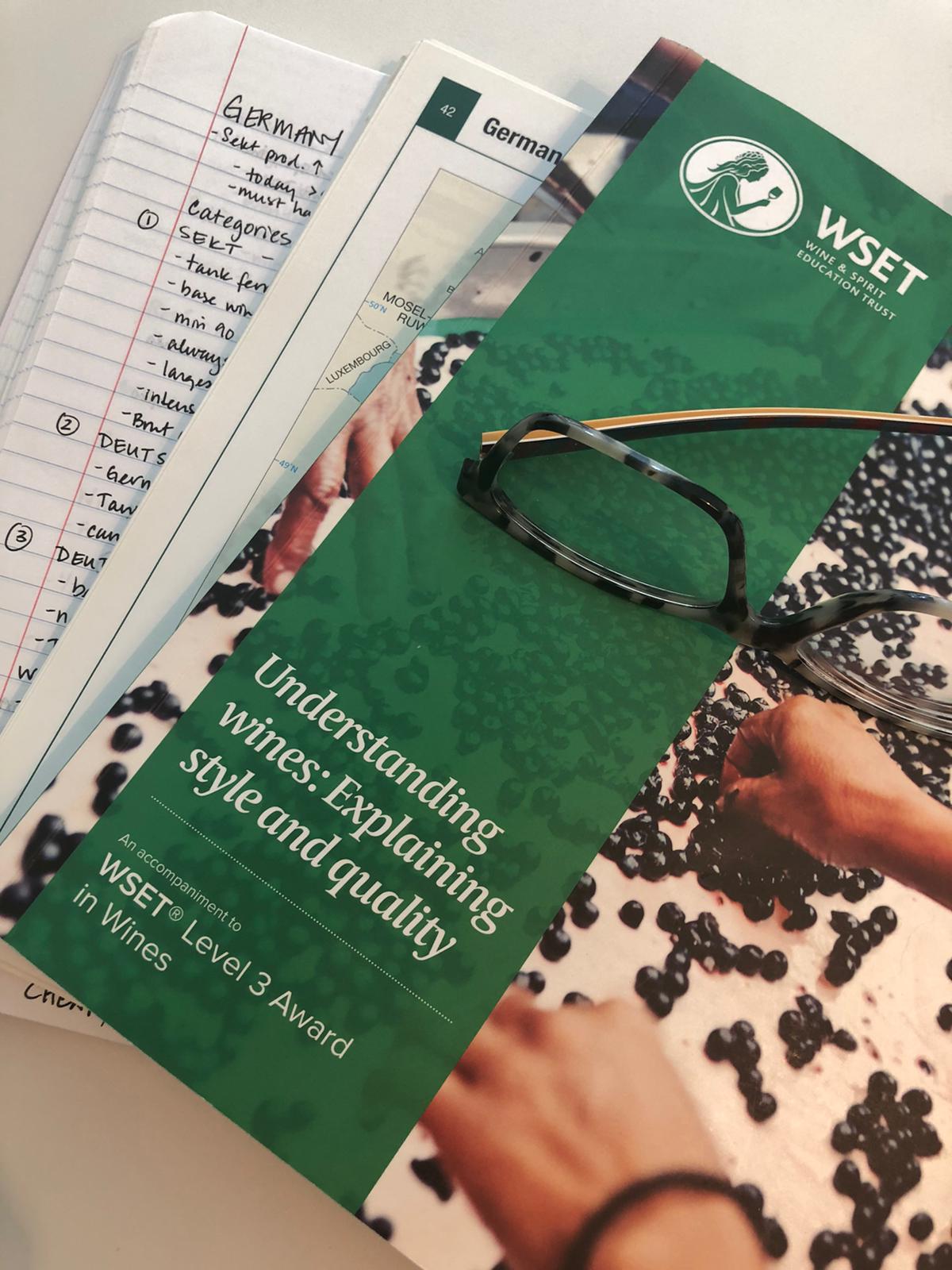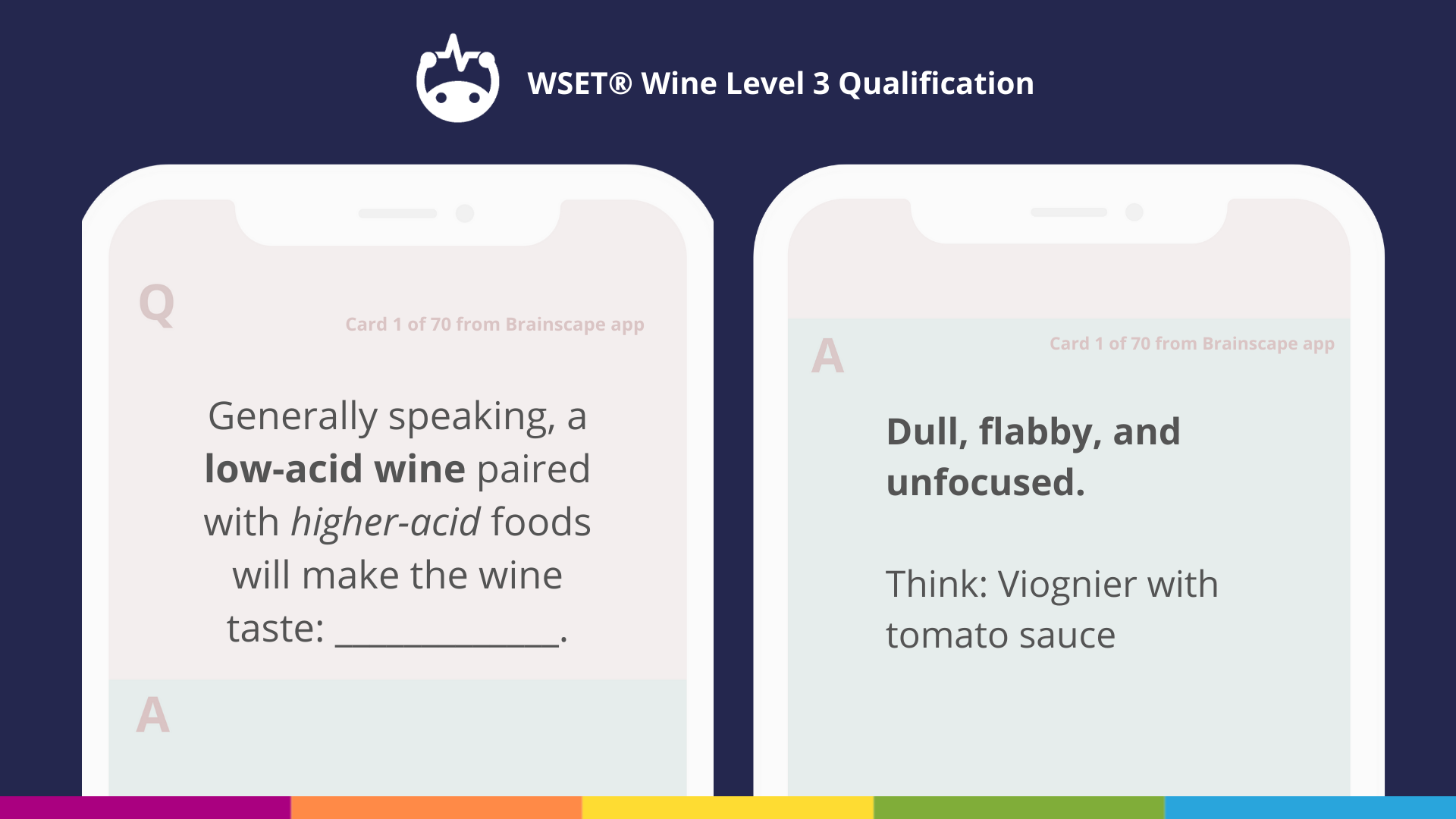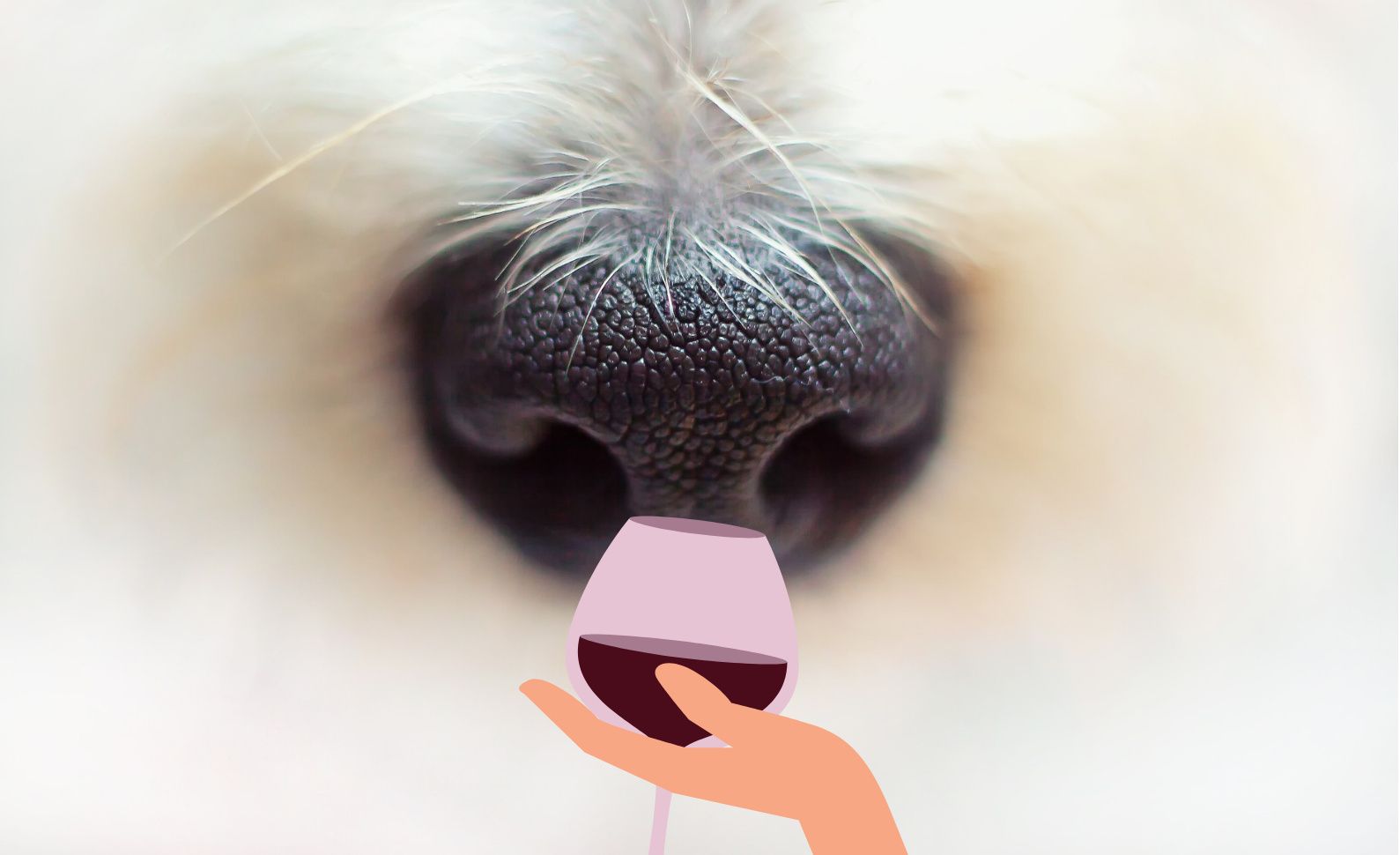You love wine: you revel in its diversity almost daily, visit wineries and cellars weekly, and plan annual holidays around the world’s key wine-making regions.
You routinely blow the lion’s share of your income on it (it’s called “investing”) and you’ve binged Somm, Sour Grapes, and every other Netflix documentary there is on wine and the rigors of becoming a sommelier. This is it. This is your passion. This is what you want to do.
Now, how do you get an actual job as a sommelier?
Well, you’re in the perfect place to find out. We here at Brainscape, the world’s smartest flashcard app, are just as nerdy about wine as we are about how humans learn (and the best and most efficient ways to accomplish that).
So we cast out our nets for subject matter experts and, amongst our prized panel of wine nerds, we landed a marlin: Sarah Looper, an experienced sommelier and wine educator in New York City.
Today, she explains to us exactly what it takes to become a sommelier and how to get a job in this exciting field of matchmaking people and food with wine.
Tip 1: Get a formal education

To become a sommelier, you’ll need to learn an ocean of knowledge about the world of wines and its kaleidoscopic array of grape varietals, officially designated grape-growing regions, wine styles, and winemaking techniques. This is not to mention the complex influences of climate, weather, geography, and soil on viticulture. The list goes on.
Why? Because it will become your job to recommend the perfect wine to suit your guests’ budgets, personal preferences, and food choices. That, my friends, is a juggling act that only someone with ninja-level wine knowledge and experience can pull off.
There are two programs that deliver this caliber of education: the internationally known and respected Court of Master Sommeliers and the Wine & Spirit Education Trust or WSETⓇ. The courses of interest that you'd probably start out on include:
- CMS Level 1 (Introductory Sommelier): a wider focus that includes beverages, salesmanship, and service, and not just wine theory.
- CMS Level 2 (Certified Sommelier): requires you to have completed your introductory course. Earns you your formal sommelier certification!
- WSET Level 1: super easy - many wine nerds can skip this exam and progress straight to the WSET 2.
- WSET Level 2: introductory in nature but contains a ton of information you’ll need to know, especially if you plan to progress to the next tier.
- WSET Level 3: advanced level and involves a practical tasting component. This is where your social life can take a swan dive off a cliff.
The CMS Level 2 and WSET 3 are the most desirable qualifications for an aspiring sommelier, given their expansive knowledge base. The best way to study for these qualifications is digital flashcards, which is where Brainscape excels! We have expert-curated and vetted collections for all the courses you'd need to take to get a job as a sommelier:
- CMS Level 1 (Introductory Sommelier)
- CMS Level 2 (Certified Sommelier)
- WSET Level 2 Wine
- WSET Level 3 Wine

(By the way: if you're also interested in spirits, check out our guide on everything you need to know about WSET spirits certifications.)
Tip 2: Obsessively exercise your nose and palate

As a wine sommelier, your sense of taste and smell are among your most important assets. But there isn’t a textbook on the planet that can school your senses the way tasting wine can. This is where you’ll have to exercise your nose and palate and teach them to recognize wine’s myriad flavors and aromas.
Here’s a rather ingenious way you can do this:
Go to a farmer’s market and take in the array of fruits, vegetables, and spices that are commonly used to describe wines, like apples, limes, green pepper, pineapples, cherries, nutmeg, cloves, and vanilla. You can also go to a flower market and smell the roses, violets, lavender, jasmine, honeysuckle and other floral descriptors used for wines.
The goal is to teach your brain exactly what these common wine descriptors smell like in real life so that when you pick up on them in an actual glass of the wine, you’ll know what you’re smelling.
Try this: Consult the tasting notes of a particular wine or wines and purchase the fruits, spices, and flowers described in those notes. Then, alternate between sniffing the wine and the various fruit/spice/flowers, etc. you can attempt to detect the, for example, cherry in that Merlot or the green pepper in that Sauvignon Blanc.
To master the ceremony behind wine tasting (and how to assess a wine’s color, acidity, fruits, aromas, and more), work through Brainscape’s WSET 3 flashcard deck on the Systematic Approach to Tasting or SAT.
Tip 3: Work in service

A sommelier is just one part of the restaurant mechanism and if you are unaware of how the environment functions—if you don’t know how to fit into it seamlessly—you won’t do a very good job. You need to learn to become a good server before you can become a good sommelier.
For this reason, many sommeliers start out as bussers and servers and, in doing so, learn how a restaurant works. Or they cut their teeth working behind the bar, washing glasses, serving drinks, making coffee, and pouring wine.
This may seem like a bit of a “fall from grace,” particularly if you’ve switched careers and now find yourself serving people rather than being served...but any discomfort you feel is just your ego talking. Working in service is a super valuable (and essential) experience if it’s your dream to become a wine sommelier.
Pro Tip: Look for opportunities at wine-driven restaurants, wine bars, wineries’ tasting rooms, catering businesses, cruise ships, or even as hotel banquet staff to build your experience.
Tip 4: Get hands-on experience in winemaking

Following on from getting good hands-on experience in a restaurant or wine bar, how about rolling up your sleeves and spending a harvest season getting vineyard soil under your fingernails? The best wine sommeliers have done just this! The pay may be minimal but the exposure to the romantic dynamism of a working wine farm—from succulent grape to wine bottle—is invaluable.
Working in a winery, even if it is just for one harvest, will color your love of wine and give context to the theory you learn in class and from the textbook. You may even accumulate a few great stories for guests!
If possible, travel to other wine regions around the world! This is the ultimate way to learn about wine and in a way you will never forget.
Tip 5: Seek out mentors
From wine-makers, viticulturists, and cellar masters to bar owners, restaurant managers, tasting room directors, and other sommeliers: wherever your work takes you, you’re likely to encounter people who have valuable experience to offer. And your experience can become a vast tapestry of theirs ... if you can unlock them.
Always be professional, courteous, and kind in your dealings with other wine folk. And don’t be afraid to ask for help, answers, recommendations, and advice. Be brave in approaching others, but not entitled or cocky, and you’ll be able to accelerate your learning so much quicker.
Tip 6: Network, network, network

You know the adage: it’s not about what you know ... but who you know. Well, in the world of wine, it’s about BOTH. And you just never know: your next job offer could be an acquaintance or chance meeting away. The key is to place yourself in the path of the wine professionals with connections.
Making friends, meeting colleagues, and networking are really important for finding job opportunities in wine and taking those next steps. Oftentimes, it’s WHO you meet that plays the biggest factor in advancing your wine career. That’s assuming you have the goods to back up the opportunity!
With that said, here are some great networking opportunities for aspiring sommeliers:
- Get to know your classmates and cultivate friendships with the people you’re learning about wine with.
- Attend industry events, conferences, expos, and festivals.
- If possible, introduce yourself to the people in charge. Greet the wine-maker, chat to the wine merchant, question the tasting room staff ... whatever it takes. Express your interest and enthusiasm and you’ll soon become a name about town.
- Join a wine-tasting group with others who are on your level of knowledge, passion, and commitment to wine.
Tip 7: Expand your job search
Since wine is enjoyed almost everywhere there is food (in an international sense, too), there are few limits on where one might dig up opportunities to find a job as a sommelier. Here are some places and industries in which one can work as a sommelier:
- Mid- to high-end restaurants
- Resorts and hotels
- Wine and cocktail bars
- Vineyards and wineries
- Fine wine merchants and retail stores
- Cruise ships and luxury charters
- Education and mentorships (training restaurant/bar staff about wine)
- Wine consulting (helping restaurants curate wine lists, etc.)
- Marketing and brand ambassadorship
- Fine wine auction houses
Also, many sommeliers find their way out of the late nights and into 9-to-5’s by making the shift to wine importing, distribution, and buying.
Tip 8: Make an effort with personal presentation

In almost all of the professional environments in which a sommelier finds him or herself, there is an emphasis on presentation. Looking clean, neat, and well-dressed is, therefore, an advantage that will earn you more respect in the industry.
On that subject, if you’re a smoker, refrain from smoking on the job. This is not only so that your nose works optimally but because there’s naught quite so off-putting as a server who stinks of ashtray.
Tip 9: Be nice!
A good, clean presentation also applies to your tableside manner. Don’t be a jerk. Your reputation will precede you so you’ve got to treat people well, especially if networking is important to you (and it should be).
What this means is, as a sommelier, be eager to learn, responsible, and trustworthy with management and peers, and be courteous, patient, and benevolent with guests and all those you work with.
It doesn’t matter if the lady at Table 14 is insisting on a Pinot Grigio with her dessert ... never get snobby with your wine knowledge. It’s not a good look on ANYONE and the last thing you want to do is scare other people away from immersing themselves in the world of wine.
Tip 10: Prepare to spend a little money

By now, you’re probably well aware of the fact that your love affair isn’t a cheap one. But if you want to explore the wines of the world (and not just its entry-level, affordable wines) you’ll have to make peace with whipping out that credit card.
One way to offset the costs of purchasing a good wine (and to get some valuable experience, as we mentioned in tips # 4 and 5) is to work a few shifts in a restaurant or bar every week and put your tip money towards your wine adventures. This is assuming you already have another job. If not, maybe it’s time to get one ...
The point here is not to just grit your teeth and take a financial hit from all the wine purchases, tasting fees, trade tickets, and wine country road trips you’re going on but to actually create space in your budget for it.
How to get a job as a sommelier: final thoughts

So there you have it! The 10 best practices for getting a job as a sommelier.
We do just have one final word of advice:
Oftentimes, the greatest obstacle on the path of many people wishing to pursue a career in wine is the fear of looking stupid. Unfortunately, however, there are some people whose appreciation for wine bleeds unpleasantly into the realm of snobbery, which can be intimidating for those who are still learning.
Never mind those people. Eliminating fear from your learning journey is going to make your experience so much smoother and more enjoyable.
For more resources to help you on your journey to becoming a sommelier, check out:
